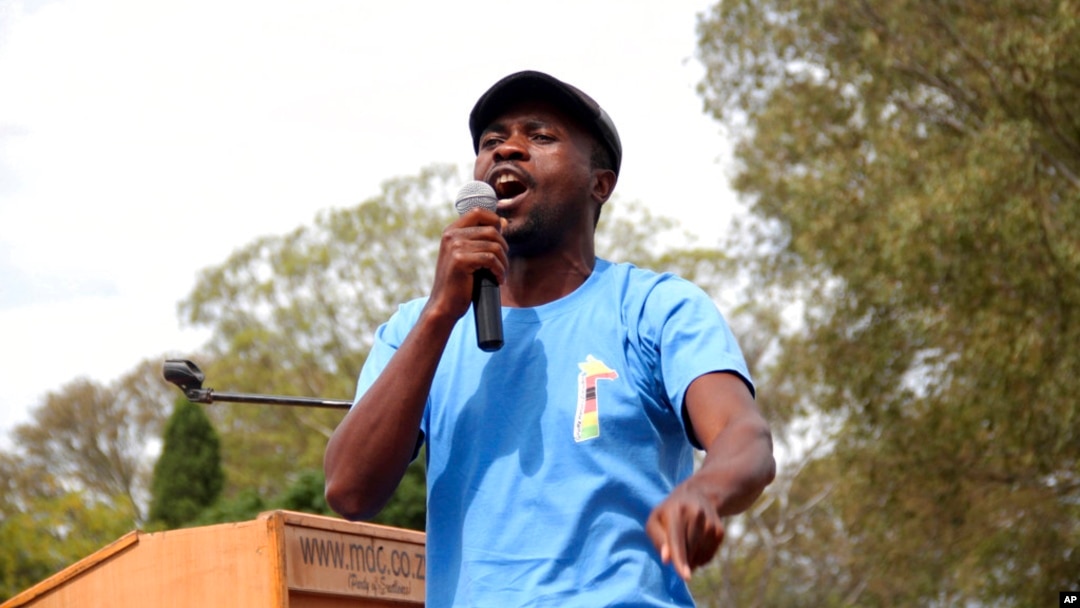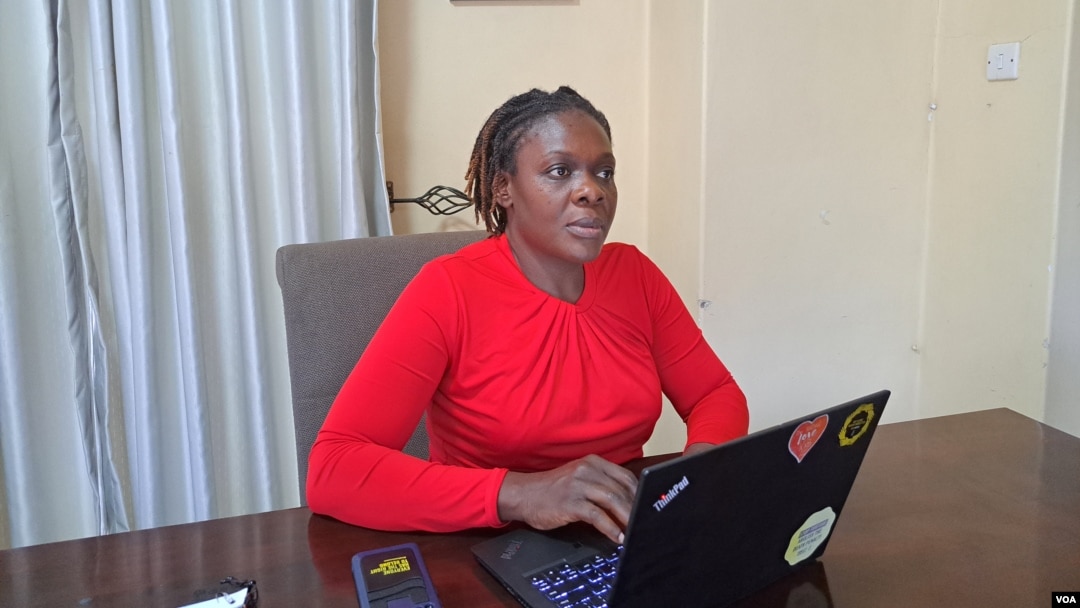There is still no word on the fate of Zimbabwean journalist turned human rights activist Itai Dzamara, an outspoken government critic who disappeared nearly a decade ago, in March 2015.
Sheffra Dorica Dzamara, Itai Dzamara’s wife, said the family wants to know what happened.
Itai Dzamara disappeared March 9, 2015, while having his hair cut by a barber in his neighborhood of Glennorah. He was reportedly abducted by suspected state security agents.
Prior to his disappearance, he had been protesting outside the parliament building calling for the government of then-President Robert Mugabe to respect human rights and boost the moribund economy.
Sheffra Dzamara said answers need to be forthcoming.
"It’s almost 10 years without knowing where Itai is," she said. "I don’t want to lie, it’s painful if I think about it and no one can tell what happened to him. He disappears from Zimbabwe and there is silence about it."

FILE - Itai Dzamara, an activist abducted by suspected state agents in 2015, addresses a gathering in Harare in March 6, 2015.
"It’s really painful if I look at the kids," she said. "The first one was 7 and the other one was 2 – they are now grown up. They now ask: 'Where is our daddy?' and no one can explain what happened to him?"
"It’s really painful," she added, "because I have no answers."
Sheffra Dzamara said she is the family’s sole breadwinner and that it is hard for the family to get by on roughly $300 a month.
Charles Kwaramba of the group Zimbabwe Lawyers for Human Rights said he got a court order in 2015 for police to search for Dzamara. But, he added, police have ignored the order.
"The investigation into Itai Dzamara’s disappearance is virtually dead," Kwaramba said. "We have not received any reports or indications that the police are still pursuing any investigation into the matter. Previously we used to receive from police what they were doing, how they were doing it, the places they were going to, how they were conducting their search. But that stopped a long, long time ago. In some instances, we would meet with officials from the police. But that stopped a long time ago. ... The state has completely abdicated that responsibility."
This week, Paul Nyathi, a Zimbabwe Republic Police spokesperson, said he could not comment on Dzamara’s case.
Amnesty International has said it believes Dzamara is a victim of enforced disappearance. Lucia Masuka, head of Amnesty in Zimbabwe, said the government of President Emmerson Mnangagwa should make an effort to find the missing activist.
"Enforced disappearances are deployed as a strategy to silence activists, to silence those expressing dissent in this country, and the case that comes to mind is that of Itai Dzamara, well known for speaking out, against corruption, for speaking out against bad governance, and for leading peaceful protests," Masuka said.
"The High Court had issued an order for authorities to investigate the case, bringing the perpetrators of this enforced disappearance to account and ensure that the families of those affected secure justice in all such cases," Masuka said.
Several demonstrations to force Harare to reveal what happened to Dzamara have not yielded results.
Rights groups have harshly criticized Zimbabwe for human rights abuses for decades.


